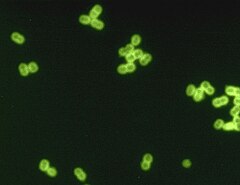An interesting study comparing the antifungal properties of numerous herbal extracts, propolis and prescription drugs against Candida albicans. This study confirms propolis is the most effective in controlling Candida albicans, even though this isn't the first time these results have been achieved. This encouraging news should put propolis on top of the list of every patient dealing with this opportunistic fungi.
Comparative effect of propolis of honey bee and some herbal
extracts on Candida Albicans
Chinese Journal of Integrative Medicine, July 7 2015
Objective
To determine the effect of propolis on Candida albicans and
to compare it with the effects of some other herbal extracts and antibiotics on
this pathogenic fungi.
Methods
The extracts of propolis, Thymus vulgaris, Caryophillium
aromaticus, Echinophora platyloba, Allium cepa and Cinnamomum zeylanicum were
prepared and the antifungi effects of the extracts were examined on Candida
albicans ATCC10231 using disc-diffusion assay and micro-broth dilution. The
minimum fungicidal concentration (MFC) and minimum inhibitory concentrations
(MIC) as well as inhibition zone were evaluated and the anti fungi effects of
herbal extracts were compared with amphotricin B and nystatin at the times of
24, 48 and 72 h. Data analysis was performed using test.
Results
Obtained results showed that propolis extract with MIC90 and
MFC equal to 39 and 65 µg/mL, respectively, possess the highest antifungal
activity when compared with other studied extracts. The extracts of Allium cepa
and Thymus vulgaris, with MFC of 169 and 137 µg/mL, respectively, showed the
lowest effects on the fungi. Also nystatin and amphotericin B yielded better
effects on the tested fungi compared with the effects of all studied extracts
on Candida albicans.
Conclusions
Propolis extract is effective in controlling Candida
albicans. However, the issue requires further investigation on samples in
animals and performing toxicological examinations.





